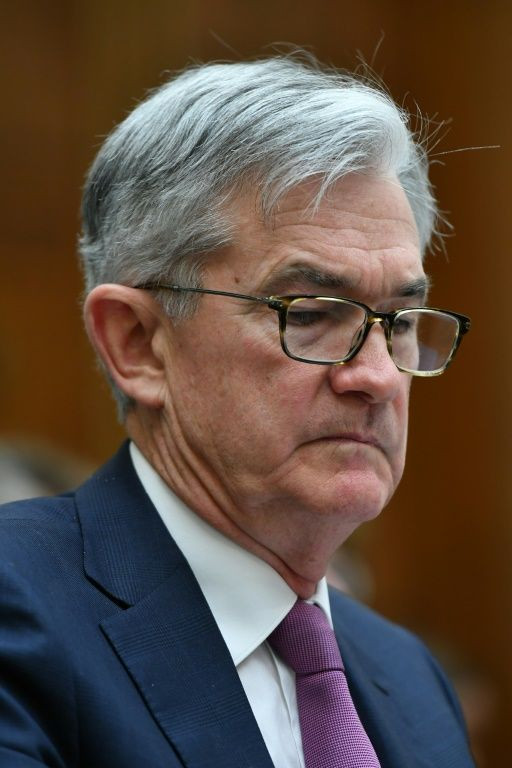Coronavirus Recession: Central Banks Try To Stave Off Depression, Could Buy Trillions More In Assets

KEY POINTS
- The U.S. Federal Reserve has moved the most aggressively, starting with its initial $2.3 trillion in loan arrangements for local governments, and small and midsize businesses
- G-7 central banks could hold $6.8 trillion in assets by the time the crisis is over
- The G-7 banks bought $1.4 trillion in assets in March and are on pace to equal that total in April
Central banks, attempting to cushion global economies from the impact of the coronavirus pandemic, could buy as much as $6.8 trillion in assets before the crisis ends. Economists agree the virtual shutdown of the world economy has triggered a recession, the traditional definition notwithstanding, and governments have been scrambling to keep the downturn from slipping into a depression.
A Bloomberg Economics analysis indicates central banks in the Group of Seven nations bought $1.4 trillion in financial assets in March and were on pace to at least match that in April. The monthly total is five times as great as the previous record in April 2009 as the world was climbing out of the Great Recession.
The U.S. Federal Reserve has been the most aggressive, expanding its balance sheet by some $41 billion a day through April 15. The European Central Bank, Bank of Japan, which pioneered the concept, and the Bank of England also have ramped up their asset purchases with Canada, New Zealand and Australia also making large-scale moves, Bloomberg said. Even smaller economies are considering action.
The New York Times reported Brazil is debating whether to give its central bank limited quantitative easing authority.
The Fed kicked off the buying spree April 9 with an initial $2.3 trillion in loan arrangements for local governments, and small and midsize businesses. It also set up dollar swap lines with several other central banks and began buying municipal and corporate bonds and exchange traded funds before kicking in $700 billion for U.S. Treasuries, mortgages and agency securities. It then lifted the $700 billion limit.
The Fed didn’t unwind its balance sheet from the last recession until 2017.
Former Fed Chair Janel Yellen has said she thinks Congress should give the central bank the authority to buy equities but that is not an action the Fed needs to take immediately.
“I think intervention to support the credit markets is more important, but longer term it wouldn’t be a bad thing for Congress to reconsider the powers that the Fed has with respect to assets it can own,” she recently told CNBC, adding it’s more important at this point for the Fed to keep its eye on credit markets.
The eurozone removed the cap on how much the European Central Bank could purchase from any one country. The bank then added 750 billion ($815 billion) euros to its balance sheet to bring the total for this year to 1.1 trillion ($1.2 trillion).
The Bank of England increased its asset purchases by 200 billion pounds ($245 billion), reduced its capital buffer requirement for banks and planned to buy investment-grade commercial paper with 12-month maturity dates.
The Bank of Japan currently holds $5.6 trillion in assets, with some purchases dating back to 2001 when stock and property markets tanked, spurring deflation. BOJ also holds 5% of Japan’s corporate bonds and a like percentage of stocks.
The Bank of Canada has injected $150 billion into financial markets and was considering further action.
© Copyright IBTimes 2025. All rights reserved.






















